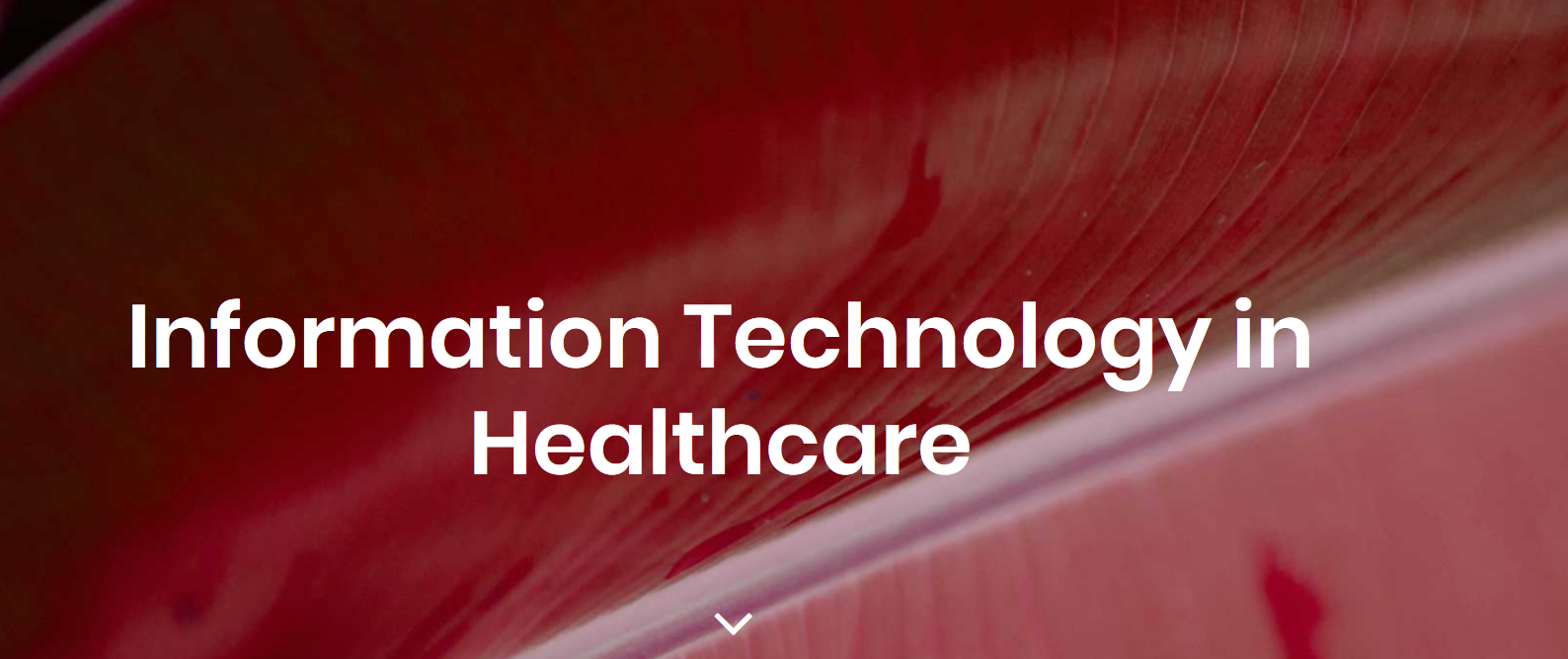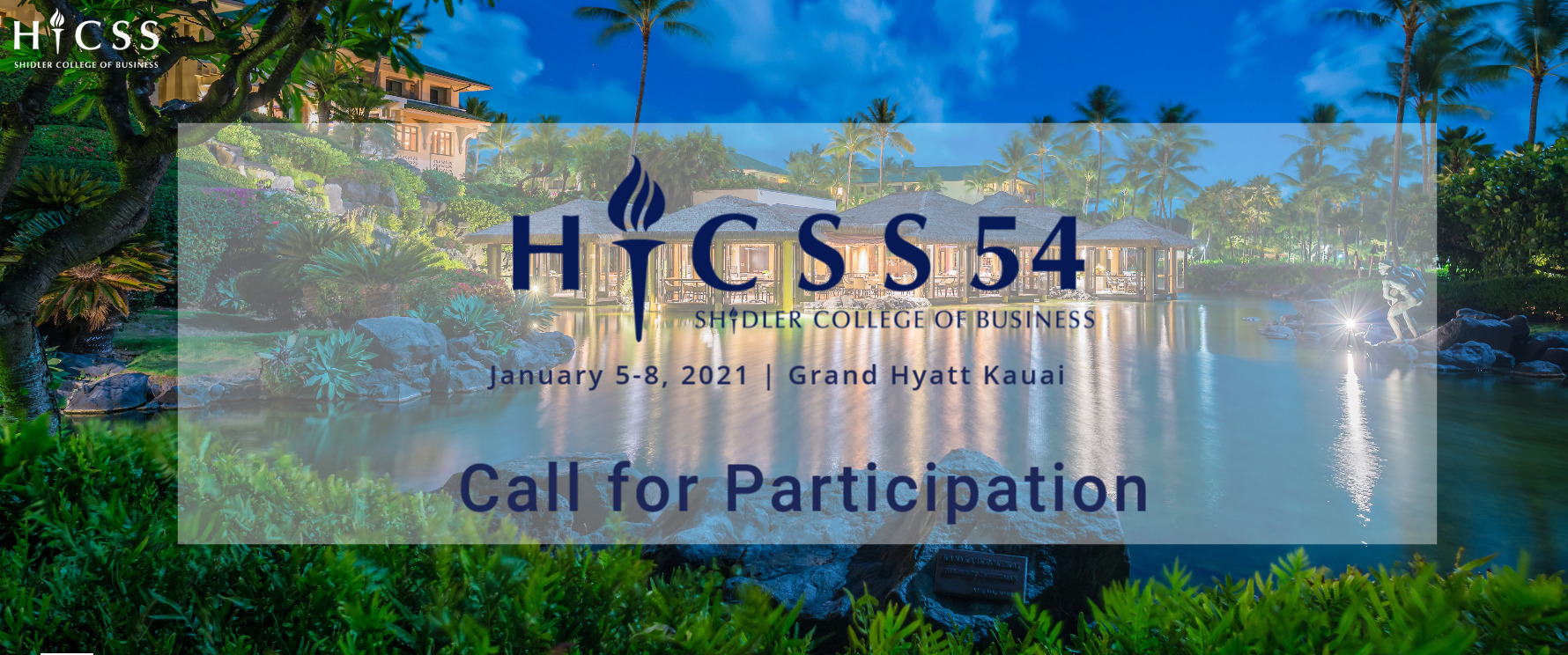Call for Papers: Ubiquitous and Comprehensive Healthcare: Expanding Technologies and Systems to Enable New Delivery Models
Addressing the complexities of today’s healthcare issues requires more than one perspective. The Information Technology in Healthcare Track serves as a forum at which healthcare, computer science, and information systems professionals can come together to discuss issues related to the application of information technology in healthcare. In bringing technical, behavioral, clinical, and managerial perspectives together, this track provides a unique opportunity to generate new insights into healthcare problems and solutions.
Health happens everywhere, though healthcare has traditionally been contained to predefined environments. Whether at home, work, school, or traveling abroad, healthcare is in demand outside the walls of traditional healthcare facilities. A wide range of organizations (e.g., pharmacies, retailers, tech firms, large employers) are filling gaps in the marketplace that current care delivery providers are not meeting. Such examples are functional medicine enterprises, at-home diagnostic kits, convenient on-premise-on-demand primary care, and synchronous or asynchronous virtual visits. Rapidly changing delivery models are shaping the new healthcare landscape.
A key focus of this minitrack is on the ever-changing nature of business, financial and care delivery models and the role of information systems and technology (IS&T) as enablers.
Potential topics include:
Ubiquitous Healthcare Innovations:
• Innovations supporting “in place” healthcare (eg. aging in place, rehabbing in place, etc.)
• Demonstrations of information technology and/or information systems to further ubiquitous healthcare across populations and regions
• Social networking approaches to achieving ubiquitous healthcare
Users, Stakeholders, and Policy:
• Use cases for special populations (e.g. Persons with disabilities, incarcerated people, youth, fitness, etc.)
• Integration of ubiquitous healthcare in graduate medical or other clinical education environments
• Challenges to the business model of traditional healthcare
Infrastructure Requirements and Developments for Ubiquitous Healthcare:
• Interoperability requirements and frameworks
• Approaches and methods for achieving next generation delivery models
• Infrastructure needs or advances to improve current state healthcare delivery
This track seeks to highlight novel research on emergent digital health IS&T, including their design, field testing, evaluation, and broader impacts. We invite submissions that present innovative models, frameworks, and technologies that delve into how IS&T supports health to happen everywhere. Studies are encouraged that report on a range of technology artifacts including mobile devices, wearables and other IOT devices, sensors, telehealth applications, tele-monitoring, mHealth apps, EHR extension apps for non-traditional healthcare environments, and integrations with these technologies and EHRs – that address how designs, implementations, methodologies, and theories are affecting healthcare delivery models and challenging current models to improve access, patient engagement, costs, and population health.
Important Dates for Paper Submission
June 15, 2020: Paper Submission Deadline (11:59 pm HST)
August 17, 2020: Notification of Acceptance/Rejection
September 4, 2020: Deadline for A-M Authors to Submit Revised Manuscript for Review
September 22, 2020: Deadline for Authors to Submit Final Manuscript for Publication
October 1, 2020: Deadline for at least one author of to register for HICSS-54
Minitrack Co-Chairs:
Benjamin Schooley (Primary Contact)
University of South Carolina
bschooley@cec.sc.edu
Sue Feldman
University of Alabama at Birmingham
sfeldman@uab.edu
Nick Patel
Prisma – University of South Carolina Medical Group
Nitin.Patel@uscmed.sc.edu
Saif Khairat
University of North Carolina at Chapel Hill
Saif@unc.edu
About the conference:
Hawaii International Conference on System Sciences (HICSS) conference will provide a highly interactive working environment for top scholars from academia and the industry from over 60 countries to exchange ideas in various areas of information, computer, and system sciences. Recent research shows HICSS ranked second in citation ranking among 18 Information Systems conferences, ranked third in value to the MIS field among 13 Management Information Systems conferences, and ranked second in conference rating among conferences.


